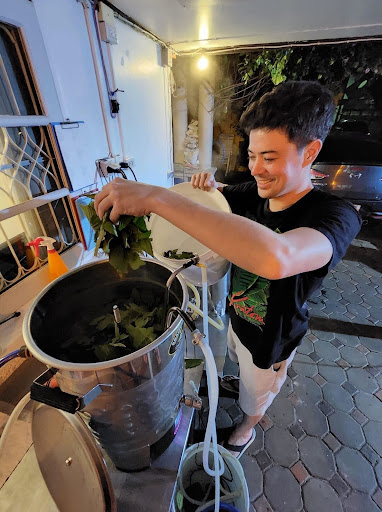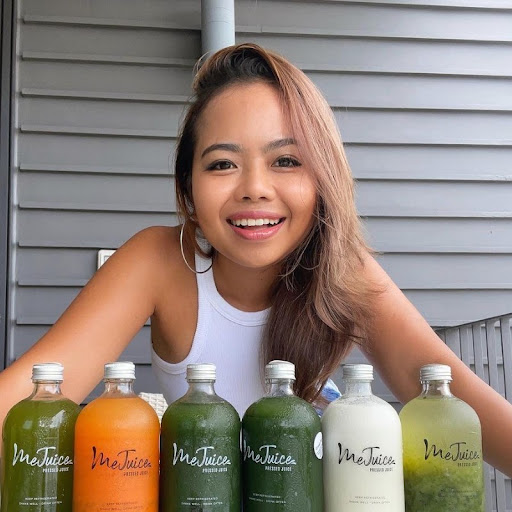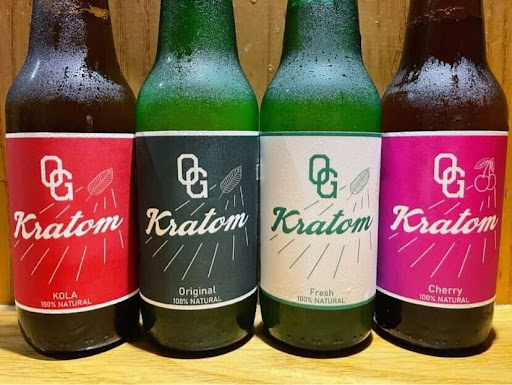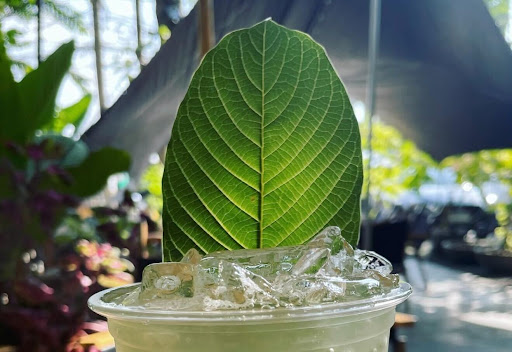While reefer madness sweeps Thailand, another decriminalized narcotic forgotten in the cannabis haze is poised to go mainstream and wash across the land.
A year after kratom became legal, recent legislation now allows its use in products such as drinks, candies, and more. Beverage entrepreneurs are gearing up to loose the juice, meaning fans of the big, veiny leaf and its alkaloid high have more to look forward to than slurping bitter homebrew.
“This is great. This means I can get it FDA approved, and I can sell it on retail shelves,” said Jake Coyner, who for the past year has been brewing the leaves into a carbonated beverage called OG Kratom.
In that time, Coyner’s gone from homebrewing dozens of bottles to producing 2,400 bottles a month at an OEM bottling facility.
Starting today, psychoactive folk remedy ‘kratom’ is legal to grow, sell

Chawanaporn Prasert, an online merchant who sells kratom powder, said the change to unshackle secondary products – something still verboten for cannabis – is better for consumers.
“It’s better to process the kratom leaf into processed goods because who’s going to be spending time chewing on the kratom leaves?” Chawanaporn said. “If you don’t process it into goods, you won’t be able to sell.”
Patcharaporn “Fhy” Kongniwatsiri, a founder of health drink company MeJuice, has begun developing an array of products, from kratom-infused drinks to painkiller sprays.
“We have actually been developing products and want to make it just small batch before it’s legal, but it seems like now we can work on trying to get the FDA and everything right,” she said.
She hopes to have the first of what she described as an “adaptogen drink” – lingo for herbs that help with anxiety and wellbeing – to market by the end of this year. Maybe a “Sparkling Kratom” or tea drink.
“The Earl Grey one still isn’t perfect yet, but I like it,” she said.
Thailand has the world’s fourth-largest market for energy drinks, accounting for over THB20 billion (US$525.5 million) annually. Just last month, Pepsi Co. brought New York-based Rockstar to the market.
While the Thai Beverage Industry Association did not return calls seeking comment, a longtime beverage evangelist was skeptical that Kratom would go mass market.

“For growth, I think there’s a chance, but the market is relatively small,” said Thanakorn Kuptajit, former president of the Thai Alcohol Beverage Business Association.
He doubts it will become as widespread as energy drinks.
“If you ask me about the future of kratom: It’s an alternative choice,” he added. “Ever since it was legalized, I was observing whether it would take off, but it hasn’t been much.”
He also questioned whether the processing necessary to pass FDA muster would result in a desirable product.
Ittirit “Kevin” Charusiri, another Kratom beverage maker already in the market, believes the legislation introduced stricter controls that will require him to reformulate his Red Cap Craft Soda, for which he has hired Thailand’s most infamous Kratom enthusiast to promote.
“I’ve been crafting it underground; distributing it to friends,” Ittirit said. “When kratom was decriminalized, there weren’t really any rules set in place. From what I understood, you simply cannot boil the kratom leaves. I’ve had to change the process in making them from boiling pure leaf to using extracts, however, I feel the actual product loses a bit of its charm and flavor.”
However, he doesn’t expect the new rules to have a significant impact on his business.
Ittirit said he was motivated to craft a Kratom soda after deciding to quit alcohol.
In fact, the buzz given by Kratom has given booze-quitters a new social lubricant and reason to return to the bar without the buzzkill, faux fun of sipping mocktails.
John Bailey of Bloom, a marketplace for wellness products including CBD and cannabis, said Kratom reopened social avenues that were closed when he went dry.
“I think socializing is really hard; alcohol is the main one, which is kind of a bit sad, but it’s great to hang out with people and laugh,” he said. “With Kratom, I felt happy, engaged and I felt much better in the morning. It was a great alternative to alcohol.”
Since producing drinks has become legal, Bloom is looking to collaborate with Coyner of OG Kratom and would like to produce a light, lemony Kratom spritz.
“Kratom has a bit of a reputation of being a lo-so drink, we’re going to try branding it a little higher,” Bailey said.

Kratom is a leaf found across Southeast Asia. While not psychoactive, it has a stimulant effect in lower doses. It can relieve pain and create a feeling of euphoria akin to a “body high.” In higher doses, it can make users drowsy.
It should be stressed that Kratom is an absolutely addictive substance. While it has numerous therapeutic benefits, its alkaloid contents tickle the same dopamine and serotonin receptors as opiates, and regular use can lead to dependence – and very difficult withdrawal symptoms.
While the new regulations expand the product possibilities, a number of controls remain in place. Cultivators looking to import and export the plant must obtain a license from the Office of Narcotics Control Board. Kratom leaves cannot be sold to minors, pregnant women by the justice and public health ministries. Those who are caught doing so will be fined THB30,000.
Also, selling the leaf at schools, national parks, zoos, or in vending machines can win a THB50,000 fine.


